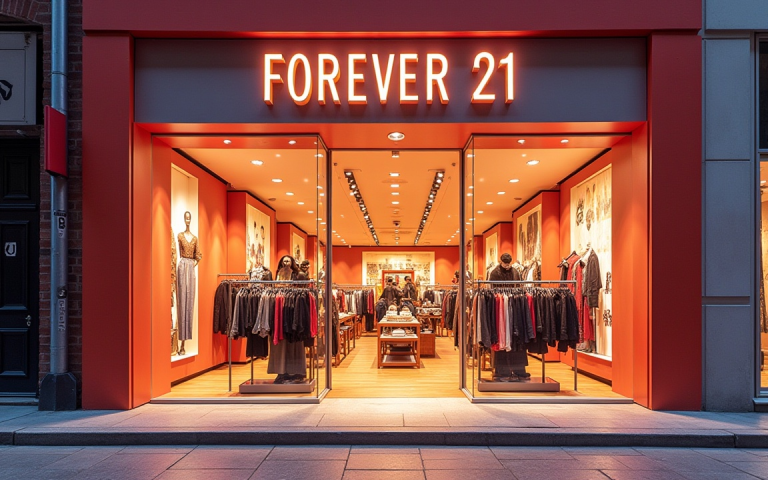Fast fashion retailer Forever 21 is preparing another comeback in China, marking its fourth attempt since first entering the market in 2008, with the company also looking for a partner to help re-establish the brand in North America months after it filed for bankruptcy in the country.
Despite a history of failed expansions and financial collapses, the brand is once again betting on China’s young consumer base, this time with a new partner, Chengdi, partly owned by e-commerce platform Vipshop Holdings, Reuters reported.
At a press event in Shanghai on Thursday, Chengdi said the focus would be on localising operations and tailoring the brand to a new generation of Chinese shoppers.
Plans include launching a physical retail presence in 2026, alongside digital campaigns designed to reintroduce the brand.
In recent months, Forever 21’s bright yellow branding has been spotted in major Chinese cities, from music festival pop-ups to advertisements across Shanghai’s metro system.
North America relaunch also on the horizon
Forever 21’s owner, Authentic Brands Group (ABG), said in a press release that its near-term focus would remain on China and the United States.
The company is currently looking for a partner to help re-establish the brand in North America, with announcements expected soon.
The fresh push comes just months after Forever 21 filed for bankruptcy in the US for the second time in six years, announcing plans to wind down domestic operations amid mounting pressure from online competition and declining mall traffic.
The filing marked its second collapse since 2019, underscoring the difficulties the company has faced in adapting to a rapidly shifting retail landscape.
Struggles with bankruptcy and competition with Shein and Temu
Forever 21’s struggles reflect the broader challenges in fast fashion, where global rivals like Shein and Temu have grown rapidly by offering cheaper, trend-focused clothing online.
The brand, founded in Los Angeles in 1984 by South Korean immigrants, expanded aggressively through the 2000s, reaching 800 stores worldwide by 2016.
However, analysts say it was slow to embrace e-commerce and became too reliant on sprawling stores in declining shopping malls.
Retail analyst Neil Saunders described the company as “a retailer living on borrowed time,” noting that its oversized store format and failure to pivot quickly to online platforms left it vulnerable.
The brand itself acknowledged in bankruptcy filings that it faced a disadvantage against Shein and other rivals who benefited from the US “de minimis” exemption, which allows low-value goods from overseas to enter the country without customs duties.
Incidentally, the de minimis exemption has been officially struck down by the Trump-led government and the change in rules come into effect on Friday.
Authentic Brands’ acquisition of Forever 21
Authentic Brands acquired Forever 21 out of bankruptcy in 2020, but CEO Jamie Salter later described the purchase as “probably the biggest mistake I made.”
When asked about those remarks this week, a company spokesperson insisted Salter still believed in the value of Forever 21 and supported its inclusion in ABG’s portfolio.
The latest China push is seen as a test case for whether Forever 21 can reinvent itself with localised operations and a sharper focus on youth culture.
Analysts say the brand will need to move away from its past mistakes of heavy reliance on malls and delayed e-commerce strategies.
Global presence continues despite US setbacks
While its US presence has diminished, Forever 21 continues to operate in Asia through franchise agreements.
In the Philippines, it is managed in partnership with SM Retail, which first brought the brand to the country in 2010.
Stores remain open in several large malls, including SM Mall of Asia and SM North EDSA, with management stressing that local operations are unaffected by US restructuring.
The post Forever 21 plans China comeback with Chengdi, eyes North America relaunch appeared first on Invezz

